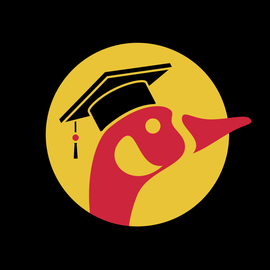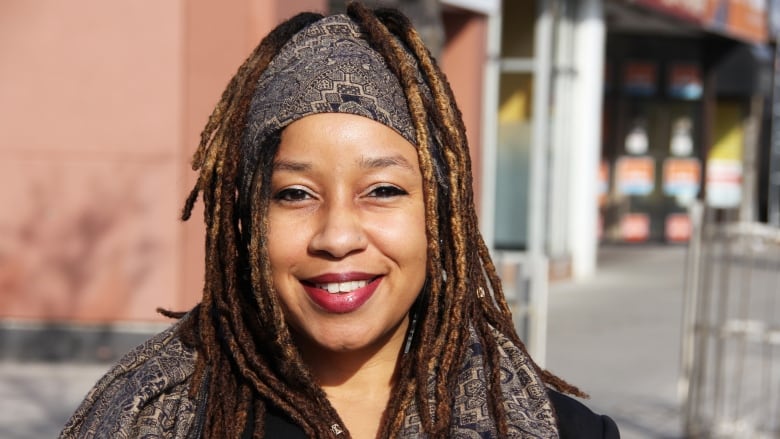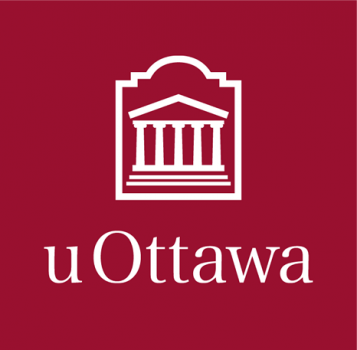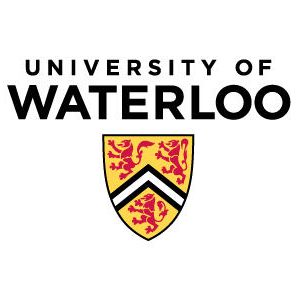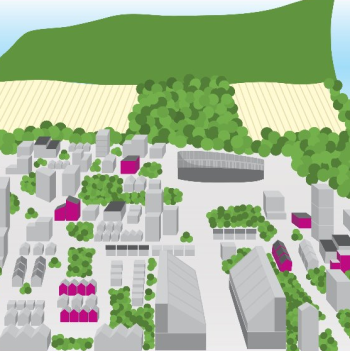Wilfrid Laurier University Staff Association Phone: (519) 884-0710 x2952 Office hours: © Wilfrid Laurier University Staff Association | Privacy Policy | Website by Sryde Digital Marketing

Contact
202 Regina St. N, Room R121
Waterloo, Ontario
Email: wlusaadmin@wlu.ca
Monday to Thursday, 8:30 a.m. to 4:30 p.m.
CONTACT US




I’m moving: what should I do about my home insurance policy?
/in OTIP, Uncategorized/by Tracy CochraneTake a look at the moving and home insurance frequently asked questions inside so that you can look forward to making memories in your new home, confident that you have the coverage you need.
Read more at www.otip.com/article140.
POST-SECONDARY CAUCUS: GETTING ORGANIZED FOR MAY 1
/in Provincial Election 2022, Uncategorized/by Tracy CochraneJoin the province-wide post-secondary caucus to get organized for the May 1 Day of Action!
The caucus is open to anyone who studies or works at a college, university, or any other post-secondary institution in Ontario.
What is the May 1 day of action?
On Sunday, May 1, thousands of people in locations all over the province will take action for a better Ontario. The day of action is part of a growing province-wide movement to challenge the harmful policies of the current provincial government and to raise our shared demands for what our campuses and communities need. Watch a teaser video about May 1 here.
GIG WORKERS’ BILL OF RIGHTS
/in Uncategorized/by WLUSAGig workers played an essential role keeping our neighbours safe and keeping the restaurant industry afloat during the pandemic, yet they are denied basic rights at work available to all other employees. Now the Ford Conservatives are attacking all Ontario workers. Recommendations from the Ontario Workforce Recovery Advisory Committee would create a third class of worker with less rights than full employees.
This is a Bill of Rights created by gig workers endorsed by Gig Workers United (CUPW), Uber Drivers United (UFCW), and the Ontario Federation of Labour to outline what minimum rights our governments must guarantee to ensure fairness and non-discriminatory treatment for gig workers.
- A worker is a worker; Full employment rights with no carve-outs from minimum wage, sick leave, vacation pay and other minimum employment standards.
- Payment for all hours of work: Paid time from when workers sign in until they sign out of the app with a clear and concise breakdown of how pay is calculated.
- Compensation for necessary work related expenses to ensure gig workers’ real wages are not reduced below the minimum wage
- Full and equal access to regulated benefits programs like Employment Insurance (EI), Canada Pension Plan (CPP) and injury compensation (WSIB).
- Data transparency: access to all data collected and how the algorithm affects workers, including any forms of discipline.
- Make all work count: gig work must count towards Permanent Residency applications.
- Put onus on employers to prove that workers are not employees, instead of workers proving that they are not independent contractors. Enshrine the predictable and purposive ABC test for employment status.
- Recognize gig workers’ right to form a union, with the union they choose, to have a collective voice at work.
- Workers must have the right to negotiate for livable wages and benefits with their employer. Real, worker-led sectoral bargaining to enable meaningful collective bargaining to raise industry standards
- An end to arbitrary deactivations and fair compensation for glitches: Just cause protection against deactivation, access to a clear and free process and enforcement mechanisms for minimum standards. Compensation for technical issues on the platform’s end.
Sign on to support the Gig Workers’ Bill of Rights.
Taken from: https://ofl.ca/action/gig-workers/
Why Organize UW?
/in Uncategorized/by WLUSAThe University of Waterloo is one of the last universities in Canada without a union for graduate student teaching assistants, research assistants, contract faculty, technicians, and other academic research and teaching staff positions.
The lack of a union has meant diminished ability to affect our working conditions, get fair wages, lower health and safety protocols, no clear or consistent hiring processes, unchallenged harassment, and no support for mental health services, and dealing with problems with work/overwork alone.
The only way to address these issues and advance the rights of graduate student and other academic workers on campus is to organize a union and negotiate a collective agreement with the university.
Our goals are:
- Fairness: Transparency, clarity, and standards at work
- Equity: Enforceable protections for all
- Security: Job security and clear rules for access of work
- Safety: A safe and healthy workplace
- Respect: Recognition as essential academic workers
- Support: Proper training & supervision
- Dignity: Improved mental health supports
- Democracy: A collective voice for graduate workers over working conditions
Together, we can make the University of Waterloo a better space for academic workers.
about us fairness anti-racism health and safety access to work workplace democracy working environment
Committee to Organize uWaterloo
supported by CUPE
The Committee to Organize uWaterloo is a grassroots campaign to unionize the academic workers at the University of Waterloo. The campaign is supported by the Canadian Union of Public Employees (CUPE), Canada’s largest union.
Taken from: https://organizeuw.org/post/whyorganizeuw/
Message to university sector members from the OSSTF/FEESO Provincial Executive
/in OSSTF, Uncategorized/by Tracy CochraneJanuary 31, 2022
To the university sector members of OSSTF/FEESO
Over the coming weeks, Ontario Universities are returning to various forms of in-person work and/or learning, and we want you to know your union is here to support you as you face uncertain days and weeks ahead. Our membership is diverse, and so are the work environments at each of your respective post-secondary campuses.
University students and faculty continue to receive the support and services they need throughout the pandemic because of your dedication. Universities continue to function because of your work and commitment to education.
Many members are feeling nervous and frustrated in light of the provincial government’s actions and inaction throughout the pandemic. We want you to know that amidst this chaotic response, your health and safety, as well as the health and safety of colleagues, students and families, continues to be OSSTF/FEESO’s priority.
As in the past few years, we continue to be a trusted voice advocating for workers, students, communities, schools, and campuses. Your efforts and our collective strength will be critical over the next year. Please continue to seek out assistance and support from your local leaders.
We know the rest of the academic term will be a difficult time for all university sector members, their institutions, and the students they serve. Together, as a united membership, with your dedicated local leaders, we will overcome the challenges that lay ahead.

Kitchener Centre MPP introduces bill to fight racism in schools
/in Uncategorized/by Tracy CochraneLaura Mae Lindo says bill would define racism in legislation, because ‘when you define it, then it is real’
Paula Duhatschek · CBC News · Posted: Dec 03, 2021 5:00 AM ET | Last Updated: 10 hours ago
Kitchener Centre NDP MPP Laura Mae Lindo introduced a bill Thursday that aims to fight racism at all levels of the education system, from kindergarten to post-secondary.
The Racial Equity in the Education System Act amends a number of existing acts that apply to the education system, from the Education Act to the Ontario College of Teachers Act, to include the definitions of racism and anti-racism.
“Those definitions, as menial as they might seem, are actually major steps toward taking seriously the realities of racism within our education system,” said Lindo at a Zoom press conference.
She said defining these terms in legislation allows everyone to get on the same page about what racism is, and what must be done to change it.
“When you define it, then it is real.”
Lindo’s bill would also:
- Require school boards and post-secondary institutions to create racial equity plans and review them regularly.
- Require professional development in racial equity for teachers and staff.
- Require boards to provide programs, resources and support for students, teachers and staff that have been targeted by or witnessed acts of racism.
- Set out penalties for those who disrupt school or class by using racist language or engaging in racist activities.
Alpine school incident speaks to broader problem: Lindo
Lindo said a recent incident at Alpine Public School in Kitchener points to the need for “systemic solutions” around racism and inequality.
A teacher has now been criminally charged after allegedly disciplining two children by taping them with masking tape.
The father of one of the children told CBC K-W he was concerned race was a factor in the incident.
Lindo said while that particular situation attracted a lot of attention, it likely speaks to a broader problem.
“The reality is that something like that doesn’t happen unless a number of smaller instances of racial violence and lack of care for racialized students were allowed to go either noticed and and met with silence or fully unnoticed because these things are norm,” she said.
Speaking at the same press conference, Teneile Warren, equity and inclusion officer for the Waterloo Region District School Board, said they support the bill.
“We need legislative support in order to advance the work that is already taking place in our school systems,” said Warren.
“We cannot continue to place the responsibility solely at the feet of teachers.”
Province says changes underway
In response to questions from CBC K-W, a spokesperson for Education Minister Stephen Lecce said the province has already given an expedited directive to school boards to collect race-based data, and required all school boards to undergo an “equity board improvement plan.”
“We know there is more to do,” said Caitlin Clark, who said the province has also moved to de-stream education in Grade 9.
“That is why we introduced mandatory anti-racism training for all education staff, introduced curriculum changes to counter discrimination and promote inclusivity, and it is why we strengthened sanctions against staff for racist actions or behaviour.”
Still, Lindo said she’s concerned that without defining terms like “racism” in legislation, different boards will end up using different language and produce data that can’t be properly compared.
“Instead of doing that, why don’t we take a step back, put a very clear vision into the universe of what racial equity in education in particular looks like, and then ensure that the language and the tools are available for everybody so that they can all be working together,” she said.
As publish at: https://www.cbc.ca/news/canada/kitchener-waterloo/kitchener-centre-mpp-introduces-bill-to-fight-racism-in-schools-1.6271617?fbclid=IwAR0UmsUDK_obCSZzYfmo72mOHSeQO2NO4Aq-Qz7PCurXG-NuE9MaDZBTWD4
COVID-19: University of Ottawa mandates vaccines for everyone on campus
/in Uncategorized/by WLUSAThe University of Ottawa has stepped up its COVID-19 vaccination policy ahead of the fall term, now requiring all students, staff and faculty members on campus to be fully vaccinated.
The post-secondary institution announced Tuesday that anyone planning to be on campus this fall must have at least an initial dose of the vaccine by Sept. 7 and a second dose by Oct. 15.
Individuals will be required to attest to their COVID-19 vaccination status via an online tool through the university by Sept. 1.
The university will make some exemptions to the rule based on the Ontario Human Rights Code or those medically unable to get the shots.STORY CONTINUES BELOW ADVERTISEMENThttps://3ddf2ad71d63c4b413fb79981d68a6b8.safeframe.googlesyndication.com/safeframe/1-0-38/html/container.html
Those who remain unvaccinated will be subject to health protocols such as frequent testing. A mask mandate and other public health measures such as physical distancing remain in place for all uOttawa community members.
There is a degree of flexibility in the vaccine policy, though exact details remain scarce: those who refuse to be vaccinated but are required to be on campus for studies such as lab work will be subject to “additional safety protocols,” the university said on its website.
The university said that low vaccination rates among the 18-to-39 age group and an impending fourth wave of the virus spurred its decision.
The new requirement is a step up from policies announced earlier this summer that only required those living in residence and playing interuniversity sports at uOttawa to be vaccinated. A similar policy was put in place at Carleton University last week.
The University of Ottawa joins Seneca College in Toronto in mandating vaccinations for everyone on campus. The University of Waterloo requires all unvaccinated community members to undergo regular rapid testing and produce negative results to be on campus.
Global News has reached out to uOttawa to seek further details about the new policy.
Via Global News
University of Waterloo to require self-declaration of COVID-19 vaccination status to access campus
/in Uncategorized/by WLUSAThe University of Waterloo will require students and staff to self-declare their COVID-19 vaccination status before coming to campus starting this fall.
An update on the university’s website said the data will be anonymous and will be used to plan health and safety approaches for the fall term.
“Just another measure that we felt like we could undertake to help keep our campus community as safe as we can,” said Chris Read, associate provost, students.
The Campus Check-In will open on Sept. 1. People can only answer “yes” if 14 days have passed since their second dose.
Anyone who answers “no” or “prefer not to say” will be sent information on vaccinations, appointment booking and other public health measures. The university will also direct students to a rapid antigen testing screening program, and they will need to participate in screening twice a week.
Anyone who isn’t vaccinated will need a negative COVID-19 test prior to coming to campus. Anyone who tests positive using the rapid test will need to go for a confirmatory PCR test and self-isolate under public health guidelines.
Vaccines are required for anyone living in residence at UW.
But some professors say the vaccination policy doesn’t go far enough.
“It falls short of what a knowledge-based institution like the University of Waterloo should be doing and that’s just requiring vaccines,” said associate professor Jason Thistlethwaite.
More than 240 faculty members have signed an open letter to the university asking for vaccinations to be mandatory for anyone coming to campus, with exceptions and accommodations as per the Human Rights Code.
“We know it can be done so — but I applaud the university in taking the steps to recognize, to put some system in place to start informing people that they should get vaccinated if they want to participate in on campus activity,” Thislethwaite said.
HOW CHECK-INS WILL WORK
The university’s website says students, staff and visitors will need to complete the check-in prior to entering any buildings.
Attendance can be recorded using automatic or manual recording. Automatic reporting uses the university’s wireless network on any personal devices to record your username, building access point and time of connection. Anyone who can’t connect to the campus WiFi will need to use a manual check-in form to record what buildings were visited, along with arrival and departure times.
People will also need to complete screening questions before arriving to campus each day. The university also encourages people to download the COVID Alert app.
The university said the information will be used for reporting building occupancy, along with contact tracing in case a community member tests positive for COVID-19.
“The data is only going to be used at the highest aggregate level so we can kind of monitor the trends across the whole campus community,” Read said.
Laurier’s Milton Campus Officially Approved
/in Uncategorized/by WLUSAAs announced by Deb Mcclatchey to all faculty and staff this morning, the Laurier community is growing! Earlier today it was announced that the Government of Ontario has given its approval for Wilfrid Laurier University to establish a new university campus with its educational partners in Milton. This announcement has been a long time coming and something the Laurier community has been talking about, and hoping for, for the last several years.
Thanks to the Laurier partnership with the Town of Milton, this new campus will be adjacent to lands for Conestoga College’s Milton campus. The Milton campus gives Laurier a place within one of Canada’s fastest-growing communities, centered in the Waterloo-Toronto Innovation Corridor. The plan for this campus includes an expansion of Laurier’s STEAM (science, technology, engineering, arts and mathematics) offerings under a planetary health umbrella, a field that examines the interdependence of human health and the health of the environment. The Milton campus will be research-intensive and extend Laurier’s research focus in sustainability, climate change and water with new opportunities focused on the STEAM fields, including engineering.
The new campus will be situated on approximately 103 acres of land donated to the university by the Town of Milton that includes 33 acres of developable land and 70 acres of undeveloped greenbelt land. The campus will scale to approximately 2,500 students in the first decade, with Laurier’s first building anticipated to open in 2024. Laurier is looking forward to the opportunity to work together with the Mississaugas of the Credit First Nation to build a meaningful partnership incorporating Indigenous knowledges and practices on the Milton campus.
You can check out the Government of Ontario news release and Laurier news release for more details about the program offerings and development plans.
Laurier has scheduled a Milton Town Hall for faculty and staff on June 22 at 9 a.m. to share further details. You can click here to register and go here to advance questions. They’ve also created the Milton Strategic Initiative web page to keep everyone up to date on project news.
There is a short video announcing Laurier’s new Milton campus that you can watch and share on social media if you are so inclined.





